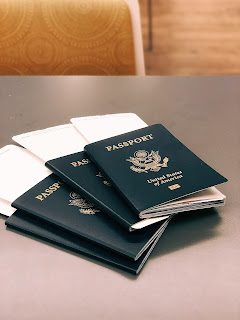On Asylum Seekers and the Church
When I first came to Rochdale, I went on a conference about Christianity and Islam. At the conference a former asylum seeker told of his experience of becoming a Christian after claiming asylum and using Christianity as part of that claim! He did the right thing and confessed (good evidence that he was now converted), but it was an interesting early insight into the issue for me.
Most churches working in areas that asylum seekers are housed will come across the issue. Asylum seekers will come to your church, sometimes they will ask for baptism, usually they will ask for some kind of supporting letter with respect to their asylum process.
The criticism of the church at this point is that we are too naive and so too supportive of asylum claims. I suppose the thought is that we are so desperate for conversions, that we grasp onto any possible conversion with both hands. Perhaps too, and this would certainly play into the current narrative of some, the implication is that we're all bleeding heart lefties anyway, so ther's no surprise we want to open the doors to anyone (you get my gist!).
For what it's worth, the actual situation is complicated (surprise, surprise!). Firstly, there are churches and there are churches. What I mean by this is that, to be honest, the variation of belief on what it means to become a Christian and when to baptise someone is massive just within the Church of England (where there is some requirement to baptise those within the parish it should be noted). And if we step outside of that into, for example the Roman Catholic church through to all the sects (Christdadelphians, Unitarians etc.) then the breadth is huge. And my experience is that asylum seekers are often not choosey where they go.
For example, I've had the experience of asylum seekers (and others actually) asking for baptism, realising it wasn't going to happen immediately and that there would be some expectations before it did and then going along to a church where it would happen faster with fewer barriers. Those churches exist and, in their case, I think the criticism has some validity, especially if the church then supports an application.
But equally, I know a church where the process before baptism is really rigorous and where they won't support applications for asylum until that process has been completed and they are convinced of the person's faith.
I would be cautious about how much weight I would put on a "conversion" story from the former of those churches (actually in a lot of cases there's the question of is it a church at all, but that's probably a different post!), but the latter would have much more credibility for me.
Even then, real Christians and real churches know that with any conversion there is room for doubt. We know that Judas managed to go three years without the other disciples twigging that he was going to be the one to betray Jesus (John 13:21-22) and of course Jesus told a parable part of the point of which was to show it wasn't immediately clear who was truly converted (Mark 4:1-20). Which is all to say that both churches and the Home Office will get it wrong sometimes - it can't be otherwise.
I think this may be especially complicated by how asylum seekers sometimes understand the correlation between becoming British and becoming Christian (a correlation that most Christians and actually most British people don't really think holds!).
So as I read the criticism being levelled I have sympathy. I do think many of the conversions are spurious and motivated by a desire to stay in the UK. I also have some sympathy for criticism of churches where they do too readily accept conversion stories and too readily support asylum applications on that process (although I don't have a good handle on how widespread that is or on how the evidence is weighed when viewing asylum seeker's cases). But I am concerned that the criticism of churches may often be unjust both because not all churches and church leaders are doing what they're being accused of and are far from naive and because they would never claim to be able to give infallible proof of conversion.
Furthermore, it isn't the church's place to make decisions about asylum or to weigh the evidence. It's not like they are financed or trained by the state as an organisation to help assess asylum claims. It seems to me that to criticise the church in this, is implicitly to criticise the system, but to lay the blame at the wrong organisation's feet.



Comments
Post a Comment